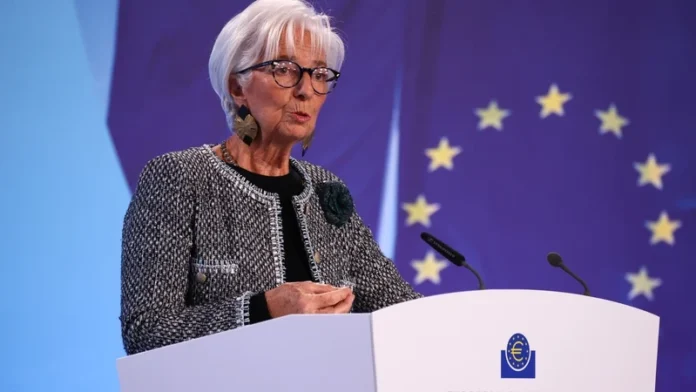By Agencies
The euro has the potential to serve as a viable alternative to the dollar, offering significant benefits to the 20-nation bloc, provided that governments strengthen the EU’s financial and security framework, said ECB President Christine Lagarde on Monday.
Global investors, unsettled by unpredictable U.S. economic policies, have been reducing their exposure to dollar assets recently. Many have turned to gold instead, seeing no direct alternative.
The euro’s global presence has stagnated for decades, largely due to incomplete European financial institutions and a lack of political will for deeper integration.
“The ongoing changes create an opportunity for a ‘global euro moment,'” Lagarde stated during a lecture in Berlin. “The euro will not gain influence by default; it must earn it.”
To achieve this, Europe needs a more robust and liquid capital market, stronger legal foundations, and a commitment to open trade backed by security capabilities, she argued.
The dollar’s role has been declining for years, now accounting for 58% of international reserves—the lowest percentage in decades—while the euro holds just 20%.
Lagarde emphasized that any increased role for the euro must be accompanied by greater military strength to support partnerships.
“Investors—especially official ones—seek geopolitical assurance. They invest in regions that are reliable security partners and can uphold alliances with hard power,” she noted at a Hertie School lecture.
Lagarde also suggested that Europe should position the euro as the preferred currency for international business transactions, which could be facilitated through new trade agreements, improved cross-border payments, and liquidity agreements with the ECB.
However, reforming the domestic economy is critical, she added. The euro area capital market remains fragmented and inefficient, lacking a truly liquid and widely available safe asset for investors.
“Economic logic tells us that public goods need to be jointly financed, which could lay the groundwork for Europe to gradually increase its supply of safe assets,” she said.
Joint borrowing remains a sensitive topic for key eurozone members, especially Germany, which fears that its taxpayers could be responsible for the fiscal missteps of others.
If Europe succeeds in these efforts, the benefits would be substantial, Lagarde concluded. Increased investment inflows would allow domestic players to borrow at lower costs, shield the bloc from exchange rate fluctuations, and protect it from international sanctions.

